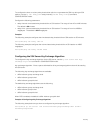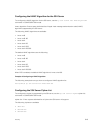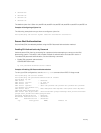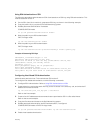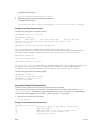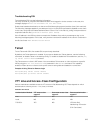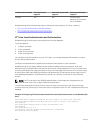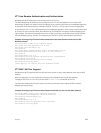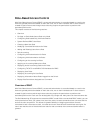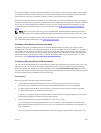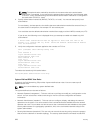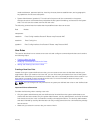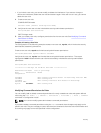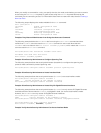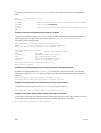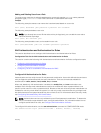Role-Based Access Control
With Role-Based Access Control (RBAC), access and authorization is controlled based on a user’s role.
Users are granted permissions based on their user roles, not on their individual user ID. User roles are
created for job functions and through those roles they acquire the permissions to perform their
associated job function.
This chapter consists of the following sections:
• Overview
• Privilege-or-Role Mode Versus Role-only Mode
• Configuring Role-based Only AAA Authorization
• System-Defined RBAC User Roles
• Creating a New User Role
• Modifying Command Permissions for Roles
• Adding and Deleting Users from a Role
• Role Accounting
• Configuring AAA Authentication for Roles
• Configuring AAA Authorization for Roles
• Configuring an Accounting for Roles
• Applying an Accounting Method to a Role
• Displaying Active Accounting Sessions for Roles
• Configuring TACACS+ and RADIUS VSA Attributes for RBAC
• Displaying User Roles
• Displaying Accounting for User Roles
• Displaying Information About Roles Logged into the Switch
• Display Role Permissions Assigned to a Command
Overview of RBAC
With Role-Based Access Control (RBAC), access and authorization is controlled based on a user’s role.
Users are granted permissions based on their user roles, not on their individual user ID. User roles are
created for job functions and through those roles they acquire the permissions to perform their
associated job function. Each user can be assigned only a single role. Many users can have the same role.
The Dell Networking OS supports the constrained RBAC model. With a constrained RBAC model, you can
inherit permissions when you create a new user role, restrict or add commands a user can enter and the
actions the user can perform. This allows for greater flexibility in assigning permissions for each
command to each role and as a result, it is easier and much more efficient to administer user rights. If a
user’s role matches one of the allowed user roles for that command, then command authorization is
granted.
826
Security



